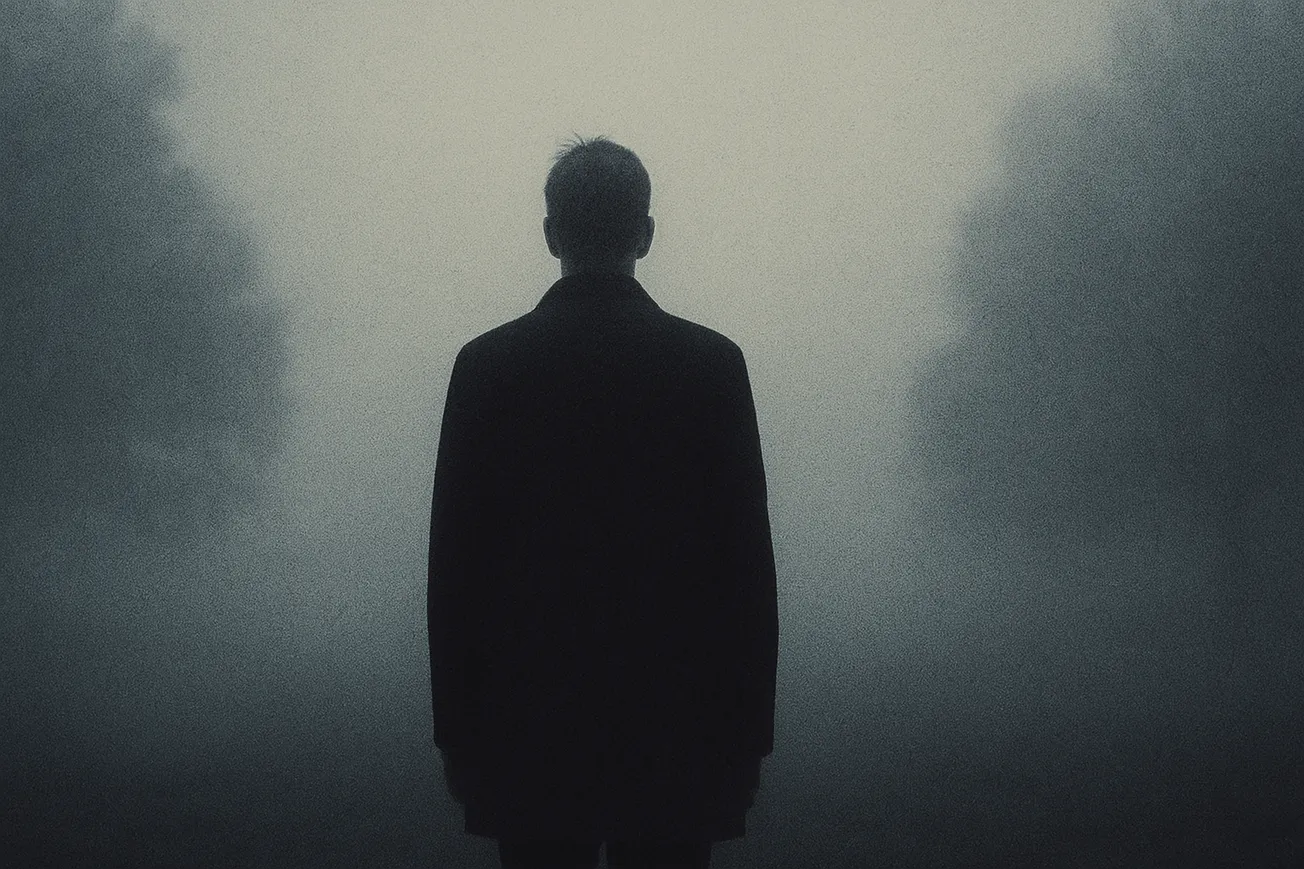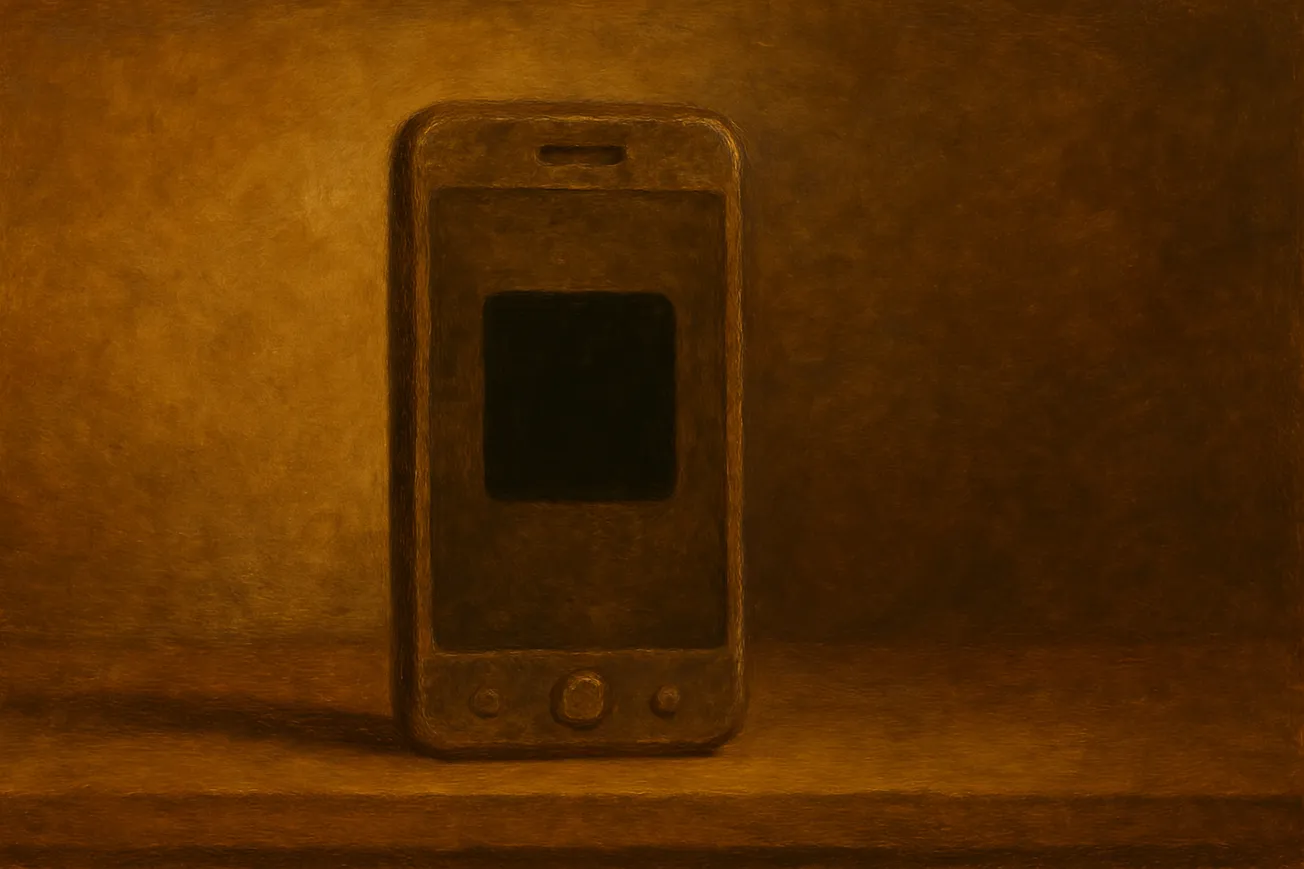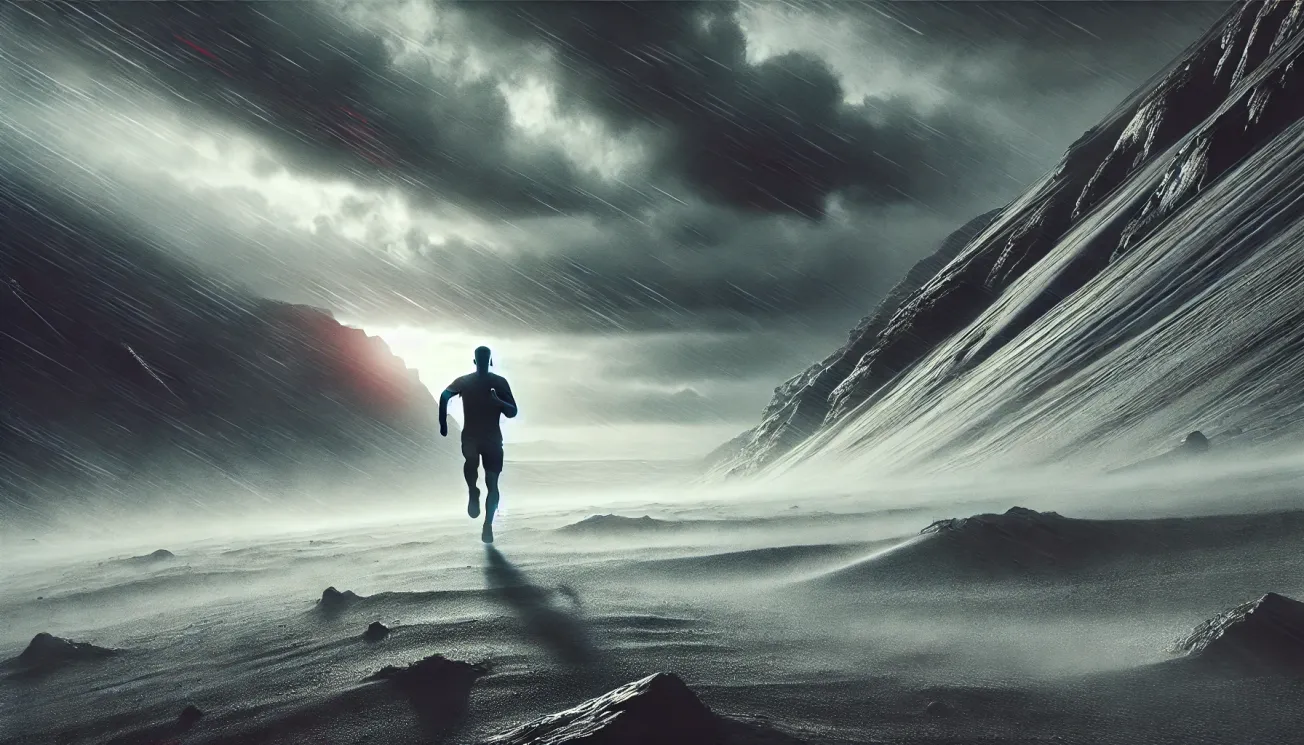Table of Contents
CHAPTER 1: The Desert, Which Has No Opinion on Leonard Finch (Refined to Perfection)
Leonard Finch is alone in the desert, which is not a metaphor and not a personal crisis and not a spiritual pilgrimage disguised as a minimalist lifestyle choice.
It is, however, an experiment.
The desert is monumentally indifferent to Leonard Finch, which is refreshing, because everything else in his life has always been too much, too loud, too concerned with Leonard Finch and what he is doing with himself.
The desert does not ask if he is living up to his potential.
The desert does not care about wasted talent.
The desert does not have opinions on his five-year plan.
The desert is just sand and sky and a low, slow wind that has been moving for a thousand miles without a single obstacle.
Leonard is, at this moment, an obstacle.
But only to himself.
THE PROBLEM WITH THINKING LIKE THIS
Most people’s minds operate on some kind of track.
Maybe not a straight line (people are not robots, people get distracted), but at the very least, a continuous forward movement.
Leonard’s mind is not a track.
Leonard’s mind is not even a highway.
Leonard’s mind is an air traffic control tower where every plane is arriving at once, and all of them are piloted by him.
Leonard’s mind is a faucet with no knob, a hose with no nozzle, a floodgate that someone forgot to attach to a reservoir and now water is just going absolutely everywhere, all the time, at terminal speed.
It is not a question of intelligence.
Leonard may or may not be a genius.
Leonard does not care.
Genius is a word other people need to explain things they don’t understand.
Leonard doesn’t care if he’s a genius.
Leonard cares if he’s efficient.
And he is not.
THE VAN, THE PLAN, AND THE TANGENT THAT STARTED IT
Leonard has lived in the desert for six months.
This was not a self-imposed exile.
This was not a break from the world.
This was a practical decision, based on a theory.
The theory was that if he removed every possible external distraction, he would finally be able to harness his own mind like a sailboat harnesses wind.
It was a good theory.
It was a theory that, so far, has failed spectacularly.
Because the problem is not the wind.
The wind is not the enemy.
The wind is not what needs fixing.
The wind is just wind.
The problem is not having a sail.
THE CLOCK, THE METEORS, THE IMPENDING REVELATION
Inside the van:
- A half-drunk cup of coffee is going cold next to
- Twelve open notebooks
- A tangled mess of USB cables
- A laptop with 46 browser tabs open (plus 13 more in a private browsing window, because for some reason those don’t feel like they count)
- A Rubik’s cube that he has not solved but refuses to take apart out of principle.
Outside the van:
- The desert.
- The absolute absence of stimulus.
- The perfect conditions for a mind like his to finally settle, focus, organize itself.
Above the van:
- The stars.
Leonard looks at them.
He knows what they are.
He knows that most of the light he’s seeing left those stars millions of years ago.
He knows that by the time the light from some of them reaches him, the star itself is already dead.
Which means that when he looks at the night sky, he is not actually seeing the present at all.
He is seeing history.
He is seeing a record of what once was.
He is seeing things that no longer exist, projected forward in time, because light takes time to move.
This feels important.
This feels like a metaphor for something he is on the edge of understanding.
Because his mind does this too.
His mind is not linear.
His mind is a series of ideas colliding in midair, arriving out of sequence, projecting their light forward into places they don’t belong yet.
His mind is a thousand-mile windstorm, ideas hitting him too fast, scattering before he can hold onto them.
His mind is a sky full of stars, except by the time he sees them, most of them are already gone.
And still—
It is possible that something about it matters.
It is possible that something about it is a key to everything.
It is possible that this, too, is a thought he will not finish before the next one arrives.
CHAPTER 2: The Economy of Generosity & The $13,217.50 Incident
Leonard Finch does not spend a lot of time thinking about money.
Not because he doesn’t need it—he does, he’s not an idiot—but because money, as a concept, as a system, has always felt arbitrary to him.
Like, if a thing is important, it should make sense.
And money does not make sense.
Not the way numbers do.
Not the way logic does.
Not the way an idea does, when it arrives fully formed, perfect, undeniable.
Which is how we arrive at the incident at the gas station.
THE GAS STATION, THE DOLLAR, THE COSMIC JOKE
There was a man standing in front of him in line at a gas station outside of Needles, California, counting out coins.
Not even quarters. Nickels and dimes.
The man was 62 cents short of being able to buy a single $5 scratch-off ticket.
Leonard, without thinking, without hesitating, handed him a dollar.
This was not a moral act.
This was not an investment.
This was not a bet on human decency.
This was just a dollar.
Leonard did not believe in luck.
Leonard did not believe in karma.
Leonard did not believe in “what are the odds.”
Which is why it was particularly irritating when the man, standing less than three feet away from him, scratched off his ticket and immediately won $13,217.50.
THE NUMBER IS THE WORST PART
If the man had won a round number, something neat and digestible like $5,000 or $10,000, Leonard would have barely thought about it.
But $13,217.50 is not a real number.
$13,217.50 is a random, malformed, awkward mutation of a number.
$13,217.50 looks like something an algorithm spit out after miscalculating for inflation.
$13,217.50 is a number that feels like it was designed to be annoying.
And the longer he looks at it, the more unnatural it feels.
It’s not just that it’s precise.
It’s that it’s too precise.
It’s weirdly specific but also completely arbitrary, which means it somehow feels intentional.
Like it was placed there on purpose.
Like it means something.
Which is an infuriating thought because Leonard does not believe in messages from the universe.
Leonard does not believe in patterns where none exist.
Leonard has spent his entire life deconstructing magical thinking, refusing to let his brain assign meaning to randomness, and yet—
$13,217.50
Why that number?
THE MAN, THE TWENTY, THE BURRITO
The man, grinning, flush with brand new, freshly printed thousands of dollars, peeled a single twenty-dollar bill off the stack and handed it to Leonard.
“Appreciate it, man.”
Leonard took the twenty.
Leonard walked to the food counter in the gas station and bought a breakfast burrito.
Leonard sat in his van and ate the burrito and did the math.
62 cents turned into $13,217.50.
A return of 2,131,855%.
A twenty-dollar repayment meant Leonard had received 0.15% of the winnings.
Which, from one perspective, was a win.
Leonard had turned $1 into $20 in under two minutes.
A return of 1,900%.
Which, from another perspective, was an absolute cosmic insult.
THE VALUE OF THINGS, THE COST OF IDEAS
Leonard does not care about money.
But he does care about value.
And this moment, this exchange, this tiny karmic incident revealed something that had been nagging at him for years, something he had never quite articulated.
Leonard had spent his entire life giving away his mind for free.
Because what was a dollar, really? What was an idea, really?
They both felt like nothing at the time.
Until they turned into something.
Until someone else capitalized on them.
Until someone won the intellectual equivalent of $13,217.50 off something Leonard had casually tossed into the world, and then turned around and tipped him a twenty.
The burrito was not bad.
The realization was not great.
THE SYSTEM, THE LEAK, THE UNFINISHED THOUGHT
Inside Leonard’s mind, something shifted.
He did not suddenly start caring about wealth or profit or maximizing his intellectual return-on-investment.
What he cared about—
What had always mattered—
What he was sitting in the desert trying to figure out—
Was how to stop leaking.
How to capture his own mind.
How to build a system where nothing got lost, nothing got given away too soon, nothing got tossed into the wind without a way to catch it.
Because the problem is not the wind.
The problem is not the winning number.
The problem is not the twenty-dollar bill.
The problem is not having a sail.
And maybe—
Just maybe—
That’s what $13,217.50 actually meant.
Not a message from the universe.
Not a joke at his expense.
Not proof of karma or luck or randomness.
But a number placed in front of him at exactly the right moment, forcing him to see something he hadn’t fully understood until now.
He stared out across the desert.
He had everything he needed.
He just had to stop giving it away.
CHAPTER 3: The Problem With Too Many Ideas (A Floodplain of Brilliance, Drowning in Itself) (Final Refinement)
Leonard Finch does not have a creativity problem.
He does not suffer from a lack of inspiration.
If anything, Leonard has spent his entire life under siege by his own mind.
Some people wait weeks or months for a single great idea.
Leonard wakes up to forty-six of them before he even gets out of bed.
Which sounds good.
It is not good.
It is like being a man standing in the open mouth of a firehose, trying to take a sip.
It is not refreshing.
It is not useful.
It is a logistical nightmare.
Because if he had one great idea, just one, singular, luminous revelation, maybe he could sit down and execute it.
But that is not how it works.
Because every time one idea arrives, another follows, louder, faster, more urgent, more interesting.
And then another.
And then another.
And then another.
Until what should have been a single moment of inspiration has fractured into fifty different pieces, each competing for attention, all demanding to be the next big thing.
Leonard is not a visionary.
Leonard is an air traffic controller in an overbooked airport, where every plane is him, and all of them are trying to land at the same time.
THE FLOODPLAIN, THE QUEUE, THE IMPOSSIBILITY OF COMPLETION
Inside Leonard’s van, there are:
- Notebooks stacked to the ceiling, all of them filled but none of them finished.
- Three laptops, each abandoned mid-project, tabs open to things that were once brilliant but now mean nothing.
- Sixteen half-written essays, none of which will ever be read by another human.
- Seven outlines for books that do not technically exist.
- A whiteboard covered in equations that may or may not be jokes.
- A running list of businesses he is not currently running.
And inside Leonard’s mind, there is a backlog of thoughts, spiraling, unfiled, waiting.
Somewhere inside his brain, there is a queue of unfinished concepts, all standing in line, all demanding to be processed.
And the worst part—
The part that makes him want to rip his own head open just to let some of it escape—
Is that he knows how this ends.
It ends like it always does.
Something new will arrive.
Something shinier.
Something urgent.
Something that will make every other unfinished thought instantly obsolete.
It is not a productivity problem.
It is not a discipline problem.
It is a friction problem.
And Leonard has spent his entire life losing to it.
THE SYSTEMS THAT FAILED (AND WHY HE KNEW THEY WOULD FAIL WHEN HE BUILT THEM BUT BUILT THEM ANYWAY)
Leonard has tried organization.
He has tried color-coded systems.
He has tried digital databases.
He has tried mind maps, sticky notes, index cards, whiteboards, voice memos.
He has built apps to organize his ideas.
He has designed frameworks to structure them.
He has drafted multi-phase execution plans to bring them to completion.
And every time, without fail, the system itself collapses under the weight of his own velocity.
Because the moment the system is built, the moment the plan is made, a new idea arrives, demanding attention, and the system is already obsolete.
It is not a workflow problem.
It is not an execution problem.
It is a friction problem.
And Leonard has spent his entire life losing to it.
THE CLOCK, THE METEOR STORM, THE NEED FOR A SAIL
Somewhere outside, a dust storm is forming on the horizon.
Leonard watches it through the windshield, tracking the way the wind shifts and gathers force, moving in ways that seem chaotic but are, in fact, completely predictable.
Because that’s how wind works.
It is not random.
It is not chaotic.
It is just movement, shaped by pressure, following rules that have existed since the beginning of time.
And suddenly—
The idea arrives.
Not an idea.
The idea.
The one he has been chasing.
The one he has almost found a hundred times before, but never fully grasped.
Because the problem is not the wind.
The problem is not the flood of ideas.
The problem is the absence of a structure that lets him move with them instead of against them.
The problem is not having a sail.
And the second he sees it—
The second the thought fully assembles itself—
It is immediately at risk of being lost.
Because in that exact moment—
Three other ideas arrive, at full velocity, competing for space in his mind.
- A new decentralized voting system based on network theory.
- A theory that stand-up comedy and religious sermons are functionally the same thing.
- A completely absurd and yet objectively brilliant way to reinvent online dating using physics-based predictive modeling.
All demanding attention.
All insisting that they are the most important thing.
And Leonard—
Leonard knows how this usually ends.
This usually ends with the important thing slipping away before it has time to fully take hold.
This usually ends with an idea that could have changed everything being lost in the noise.
But not this time.
Not this time.
This time, he sees the pattern before it swallows him.
This time, he holds onto it.
This time, he finally understands.
THE BREAKTHROUGH (OR: HOW TO FINALLY HARNESS THE THOUSAND-MILE WIND)
The way forward is not about stopping the storm.
The way forward is not about choosing the right idea.
The way forward is about structuring the ideas as they arrive, so that nothing is lost, nothing is wasted, nothing vanishes before it has time to become what it was meant to be.
And now—
Now, he has the sail.
CHAPTER 4: The Almost-Lost Epiphany (Three Ideas That Almost Drowned the Right One)
Leonard Finch has spent his entire life on the edge of something.
If you asked him what, exactly, he wouldn’t be able to tell you.
It has always felt like a shape forming in the fog, something just past the limits of perception, a thought he almost understands but never fully catches.
And that’s fine. That’s always been fine.
Until now.
Because now, for the first time, he has it.
The missing piece. The answer to why everything he has ever tried to do has collapsed under its own weight.
The thing he has been searching for, unconsciously, for years.
He has it.
He sees it.
It is right there.
And then—
Three new ideas arrive, at full velocity, demanding to be processed immediately.
THE FIRST IDEA: HOW TO REBUILD DEMOCRACY
The first idea is about a decentralized voting system.
A new way to handle elections that eliminates fraud, increases participation, and makes gerrymandering obsolete.
It is not a bad idea.
It is a brilliant idea.
It is so obviously correct that he feels an immediate, crushing frustration that it does not already exist.
It is an idea that, given the right team, the right funding, the right momentum, could probably change the world.
But—
It is not the idea he was just thinking about.
It is not the thing he is on the verge of solving.
And the worst part—
The part that makes him want to scream—
Is that his brain does not care.
It does not rank ideas in order of importance.
It treats them all as equal, all as urgent, all as worthy of his immediate attention.
It is not built to protect the epiphany that actually matters.
THE SECOND IDEA: THE STAND-UP COMEDY THEORY
The second idea is about stand-up comedy and religious sermons.
Specifically, that they are functionally the same thing.
Which is something he has suspected for a long time, but only just now fully understood.
Because they are both performances built on:
- Rhythm.
- Tension and release.
- A controlled, premeditated narrative arc designed to manipulate emotion.
Which means that humans, universally, across all cultures, have always gathered in rooms to listen to a single person stand on a stage and deliver what is essentially the same structure of speech—
One to entertain.
One to save souls.
Which means that the difference between a comedian and a preacher is not the format.
It is only the goal.
Which means that—
Oh, goddamn it, this is a good idea.
But it is not the idea he was just thinking about.
And yet—
And yet—
His mind is already getting lost in it.
Already shifting gears, already abandoning the previous idea in favor of this one, because this is newer, shinier, still full of mystery, still unsolved.
And suddenly, he feels it—
That old, sickening feeling—
That he is about to lose the thing that actually matters.
He can already feel the clarity slipping.
And then—
Because of course—
The third idea arrives.
THE THIRD IDEA: THE MATHEMATICS OF LOVE
The third idea is about reinventing online dating using physics-based predictive modeling.
Because relationships are not random.
Attraction is not random.
Falling in love is not random.
It is a system of probabilities.
People think they want mystery in romance, but what they actually want is the illusion of mystery inside a structured, predictable pattern.
Which means, with the right equations, you could design an algorithm that produces matches that feel random but are, in fact, mathematically inevitable.
Which means—
No. No. NO.
This is not what he is supposed to be thinking about.
But it is already too late.
He can feel it happening.
The original epiphany—the real one—is already slipping into the background.
He can’t remember the exact wording of it anymore.
He can’t feel the weight of it anymore.
It is already becoming just another thought among thousands.
And this—
This is exactly how it always happens.
THE MOMENT OF FRACTURE (WHERE HE USUALLY LOSES EVERYTHING)
This is the moment where he normally gives in.
Where he lets go of the big one in favor of chasing the next one.
This is the moment where it all collapses.
But—
Not this time.
This time, he sees the pattern before it swallows him.
This time, he recognizes the cycle for what it is.
Because the problem is not the flood of ideas.
The problem is not the speed.
The problem is not inspiration itself.
The problem is how he has always handled it.
He has always let himself be pulled in every direction at once.
He has always assumed that momentum meant progress.
He has always chased the wind instead of capturing it.
But now—
Now, for the first time, he sees how to build the sail.
THE BREAKTHROUGH: HOW TO CATCH EVERYTHING, LOSE NOTHING, AND BUILD THE PERFECT SYSTEM
The way forward is not about choosing the right idea.
The way forward is not about stopping the flood.
The way forward is about structuring the storm.
And for the first time in his life, he can see it.
It is so obvious.
It is so simple.
It is so inevitable.
This is how to finally harness his mind.
This is how to make use of the thousand-mile wind.
This is how to stop losing everything to the onslaught.
And suddenly—
Everything changes.
CHAPTER 5: The Wind That Never Stops & The Moment of Mastery
Leonard Finch is not a different person now.
That is important to establish.
Because when a breakthrough happens, people like to imagine that it is transformative. That the person who has the revelation becomes someone new, someone elevated, someone who is suddenly free of the struggles that led them there.
But that is not how this works.
Leonard’s mind is still a hurricane.
The wind is still howling.
The ideas are still arriving at the same velocity, still colliding, still fighting for space.
But now—
Now, he is not fighting against them.
Now, for the first time, he is moving with them.
Because now—
He has the sail.
THE STRUCTURE, THE SYSTEM, THE MASTERPIECE
The system is not complicated.
Which is almost offensive, really, given how long it took him to figure out.
Because when you boil it down—
When you strip away all the noise, all the panic, all the frantic scrambling for control—
The answer is embarrassingly simple.
1. Every idea gets captured. Immediately.
- No exceptions.
- No "I'll remember it later."
- Later does not exist.
2. Every idea gets processed into a usable form.
- Raw thoughts are worthless. They are data without structure, wind without a sail.
- The only thing that matters is narrative.
- Ideas must be given shape, meaning, purpose, context.
3. The system does the work, not him.
- He does not need to filter, sort, prioritize, agonize.
- The system makes the decisions.
- He just follows it.
And the second this is locked in, fully operational—
Something unbelievable happens.
The backlog vanishes.
The overwhelming queue of unfinished thoughts, the tangled mess of competing priorities, the infinite sprawl of things he could be doing but isn’t—
It is gone.
Because now—
Every idea has a place.
Every thought has a trajectory.
Everything moves forward, effortlessly, automatically.
And for the first time in his life, he is no longer drowning in himself.
THE FINAL TEST: A NEW IDEA ARRIVES
And then—
Because of course—
It happens.
A new idea arrives.
Out of nowhere, fully formed, as brilliant as anything he has ever thought.
And for the first time, he does not panic.
He does not feel a rush of urgency, a sudden pressure to chase it before it disappears.
Because now, he knows what to do.
He catches it.
Processes it.
Files it.
And lets it go.
Because the system will bring it back when it is time.
Because now—
For the first time—
His mind is not the enemy.
Now, it is the engine.
Now, it is the thing that carries him forward.
Now, it is his greatest strength.
THE DUST STORM, THE DESERT, THE END OF THE STRUGGLE
Outside, the desert is exactly the same.
The wind is still moving.
The sky is still vast.
The world is still indifferent.
But Leonard is not the same.
He steps out of his van.
The air shifts.
He can feel it.
Something huge is coming.
A dust storm, rising on the horizon.
It is massive, endless, a wall of momentum moving toward him with impossible force.
A month ago, it would have felt like a metaphor for the chaos of his mind.
Now, it feels like momentum.
Like something he can use.
Leonard watches it approach.
The wind pulls at his clothes, his hair, the edges of his mind.
He closes his eyes.
Takes one deep breath.
And moves with it.






